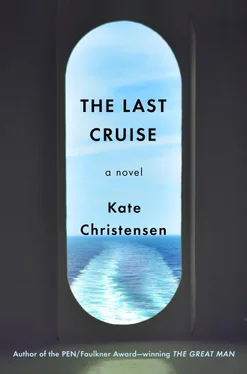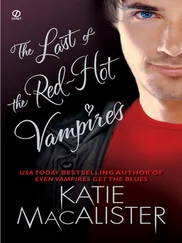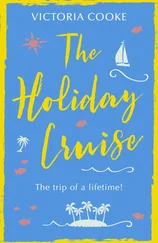“You already conducted an interview?”
Valerie’s tone softened. “With Orpheus. What a name. He’s Jamaican. He has a dreamy accent, they all do. No one on the crew is American, he also told me. They’re all foreign-born. And the ship itself is registered in Panama for tax purposes even though it’s American-owned.”
There was a knock on the door. Christine was closest, so she opened it. A young black man in a uniform stood in the doorway with a wheeled cart, which held a champagne bottle in a silver ice bucket, a small shiny gold box, and a cream-colored envelope. “For Miss Valerie Chapin,” he said, pronouncing her name with a lilting accent.
He wheeled the cart in and wedged it between the two beds.
“What the hell,” said Valerie, flinging herself across Christine’s bed and plucking up the card. “It’s from my new editor. ‘Dear Valerie, bon voyage, work well, best, Lisa.’ God, how thoughtful, I like her already. Although ‘best’ is not my favorite sign-off. So corporate. But whatever.”
The steward hovered. He was small and slender and very pretty, there was no other word for him. His short black hair was neatly parted on the side, but one tiny cheeky spit curl was pasted against his temple, and a diamond chip glittered in one nostril.
“My name is Trevor,” he said, addressing Valerie. “I’ll be your room steward for the voyage. Please inform me of all your needs and requirements, and I will do my utmost to fulfill them.”
Christine had been fumbling desperately in her pockets for a bill of some kind to tip him, knowing she had nothing.
“Trevor,” Valerie said, putting out a hand to stop Christine. “You get your tip at the end, right? That’s how it works?”
He gave one brief flutter of his long lashes, a butterfly’s flick of surprise. “Correct, ma’am,” he said.
“If you call me ‘ma’am’ one more time, you’re not getting a dime,” said Valerie. While she talked, she opened the small gold box on the cart and plucked out a truffle and handed it to Christine. “It’s ‘mademoiselle’ from now on. I love your accent. Where are you from?”
“Haiti, mam’selle,” said Trevor.
Christine caught a glint in Valerie’s eyes, the rapacious intentional charm of a wolf espying a lone Bambi in the woods. “Do you have a minute, Trevor? Can I ask you a few quick questions about your job for a book I’m writing? Sit here, it’ll only take two minutes, and then you get to be in a book.”
“Okay, mam’selle,” said Trevor, perching with dainty obedience in the armchair.
Christine left Valerie with her subject and went out into the stuffy narrow hallway, which was as ugly as their cabin: blue-and-gold patterned carpet; embossed, swirled gold wallpaper; fan-shaped sconces with bright bulbs blazing in them. She skirted passengers going in and out of their staterooms, dodged stewards with carts, climbed some stairs, and finally burst out of the stairwell and inhaled the fresh air. As she climbed an outdoor flight of metal stairs, the ship’s horn let out a blast. The engines rumbled underfoot. The ship gave a lurch, and just like that, the Queen Isabella set off.
Christine joined a crowd of people standing at the railing. She watched as the Port of Long Beach fell back into a blue haze, saying an unsentimental but ritualistic-feeling goodbye to the pelicans, the oil rigs, the shipping-container cranes, the harbor, the aquarium, and the grand old Queen Mary, soaring so much higher than the Isabella; her black-capped funnels were among the last sights Christine saw before they were truly at sea.
On a small stage by the swimming pool, a jazz trio struck up a snappy rendition of “Take Five.” Uniformed waiters appeared with trays of retro snacks. As they went by, Christine scored a Ritz cracker spread with pimiento cream cheese, then a pig in a blanket, and then an oyster broiled in its shell, smothered in green sauce and breadcrumbs. Soon she’d make her way to the bar and order a very dry and icy martini with three fat olives on a toothpick, and later she’d meet Valerie at the restaurant for a fancy dinner, and she wouldn’t have to cook it herself or pay for it, and she could wear one of the dresses she’d brought, and high heels, and she’d put her hair up. She could indulge and not feel guilty. Ed wasn’t here to look askance at the wastefulness of it all, to wonder aloud what the point was. There was no point, really. And that was enough for Christine at the moment. As she looked around for the next tasty morsel, she remembered that eating was supposed to be the entire point of a cruise; the whole commercial venture was predicated on the simple equation of appetites and their satisfactions. Unable to muster any argument with this, she gave herself over to it, letting her perceptions and appetites coexist happily.
As the blue forms of land receded farther and farther into the distance, Christine wandered around the deck, picking more snacks off trays, until she found a small semiprivate nook on a balcony. She eased onto a wooden deck chair, leaned back, and gazed out at the open ocean, feeling like a character in an old movie. The Pacific was totally foreign to her. She was used to the Gulf of Maine’s heavy rocking chill, the steady winds constantly ruffling its blue-gray surface, water that never warmed up fully even on the hottest summer days, so when you plunged in, your skin burning from sunbathing, the shock of icy brine made you hold your breath and your skin tingle as if it had been mildly burned. This was a different ocean altogether, misty and amiable, a placid, pale green, gently rocking bath splashed by frank sunlight. Even the air smelled warm, with whiffs of blooming underwater algae that thrived in body-temperature shallows. She pictured the weather turning rough, hard winds sending high white-foamed waves cascading against the upper decks, the ship juddering and pitching, and shivered with happy imagined horror. The forecast for the next two weeks held nothing but sunshine and calm seas.
She picked up one of the cruise brochures lying on the side table next to an ashtray. The Isabella ’s shape on the cover was reduced to a few lines: her bow was slender and high, pointed and aerodynamic, her stern curved like an Art Deco bar, half a flying saucer, out over the water. The ship had three cross-shaped masts interspersed with two funnels that slanted back like the much-larger Queen Mary ’s. Her foredeck was clear, so her unencumbered nose cut through the water. The highest decks rose steeply from her middle, planted there like a building.
On the first page was a map of the ship. “C” and “B” decks were at the bottom, where most of the crew and staff worked and lived and where the stores and engine room were. Then came “A” deck with the restaurant, buffet, and galleys, and above that the main deck, then the sun, promenade, bridge, and pool decks above. The pool deck had a raised solarium at the stern, more suites and cabins in the middle with a catwalk on either side, and up front, a bar by the swimming pool. Christine resolved to spend the bulk of her waking hours there, drinking and reading and swimming and soaking up the sunlight. It was the least she could do, since Valerie had to work the entire time. She stretched and yawned.
On the next page she found a bullet-point list of facts about the Queen Isabella. The ship’s body was 674 feet long and 86 feet wide and 28,600 gross tons. Her record speed was 26 knots, and her cruising radius was 20,000 miles, whatever that meant. She had a passenger capacity of 976, although on this, her final voyage, the brochure said, the guest list had been cut down to 400 so that everyone could stay in upper-deck staterooms and suites, and to make “the cruising experience feel more intimate and exclusive.” Christine wondered uncharitably if this was because the lower passenger cabins were unfit for habitation, maybe beginning to mold and decay. Or else they just hadn’t been able to fill the ship with passengers.
Читать дальше












